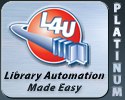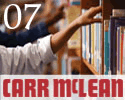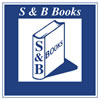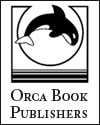New Freedom to Read Initiative & Resource Guide
Toni Samek
Issue Contents
______________________________________________________
Notice: New Freedom to Read Initiative for Alberta’s English Language Arts Teachers
Even in Canada, a free country by world standards, books and magazines are banned at the border. Books are removed from the shelves in Canadian libraries, schools, and bookstores everyday. Free speech on the Internet is under attack. (Excerpt from Canada ’s Freedom to Read Week Kit, 2004).
The theory and practice of intellectual freedom are essential underpinnings of critical inquiry and informed citizenship, both important goals of our education system. However, our teachers are hard-hit by related sensitive social issues, such as book challenges, Internet access and child protection, principles of intellectual freedom in the aftermath of terrorist attacks, the impact of cutting teacher-librarians, and working with community leaders to deal with concerns about school resources.
English language arts teachers are the hardest-hit of our educators for a number of reasons: (1) the resources and curriculum they use is challenged regularly, (2) the intellectual works they choose are subject to broad interpretation, (3) the students they teach represent every level and age group, and (4) they are rapidly losing their best professional consultants on intellectual freedom issues--teacher-librarians. (Alberta currently employs only about 70 teacher-librarians.)
Because Alberta ’s teacher librarians are already seriously overburdened, the
University of Alberta’s School of Library and Information Studies has launched a new freedom to read initiative for Alberta ’s English language arts teachers. This initiative includes the development of workshops, conference sessions, and resources designed to help the teachers strengthen school policy, curriculum, resources, community relations, and media response in the context of sensitive community climates.
Initiated by Toni Samek
-- funding generously provided by the Faculty of Education, University of Alberta
Toni has given the following public talks contributing to the intention of this initiative:
New Freedom To Read Initiative for Alberta 's English Language Arts Teachers. Learning Resources Council (of the Alberta Teachers' Association) with the Alberta Library Conference 2005. Jasper, Alberta. April 29, 2005.
Ethical Reflection on 21st Century Information Work. Conversations About Ethics: Presented by The School of Library and Information Studies, Elementary Education, and Secondary Education Graduate Student Association. Edmonton, Alberta. March 18, 2005.
Librarians Never Looked So Tough: How Librarianship Advocates for Human Rights and Global Citizenship. Greater Edmonton Regional Learning Resources Council Winter Conference 2005. Edmonton, Alberta. February 5, 2005.
An Introduction to Librarianship for Human Rights. Educating for Human Rights and Global Citizenship: International Conference. University of Alberta. Edmonton, Alberta. November 12, 2004.
Schools and Libraries: Are They the Last Bastions of Intellectual Freedom? Canadian Library Association Annual Conference 2004/ British Columbia Library Association Annual Conference 2004. Victoria, British Columbia. June 18, 2004. (Co-presented with Peter Carver, Red Deer Press; Dr. Ann Curry, University of British Columbia.)
A Faster Moving Target: Intellectual Freedom Today. Alberta Library Conference 2004. Jasper, Alberta. April 30, 2004.
Principled Engagement: An Introduction to Librarianship for Human Rights. Education for Human Rights and Global Citizenship Workshop. University of Alberta. April 22, 2004.
Intellectual Freedom and Freedom to Read. The Lorne MacRae Intellectual Freedom Lecture. Connect! Live in Fragments no Longer 2004 (A Joint Conference of the Computer Council, English Language Arts Council, and Learning Resources Council of the Alberta Teachers' Association.) Banff, Alberta. April 17, 2004.
New Freedom to Read Initiative Resource Guide Compiled and researched by Valerie Thomson
The Freedom to Read Initiative, initiated by Dr. Toni Samek at the University of Alberta, is a support resource for language arts teachers on how to fight book challenges and receive assistance with advocacy for freedom of information in schools. This resource guide constitutes preliminary work completed for the initiative and serves as a foundation for information to help teachers defend books and the freedom of information.
The guide is subdivided into Canadian resources, U.S. resources, and international resources. Contact information has been provided wherever possible in order to assist users of this resource guide with gaining support and advice in their endeavors. A list of regional library associations’ Intellectual Freedom committees in Canada is provided at the end as an additional area of support for schools.
Canadian Resources
- “Access to Information Act.” Department of Justice. 2004. Government of Canada. 28 Oct. 2004 http://laws.justice.gc.ca/en/A-1/8.html
-Official document describing Canadians rights of access to information.
Contact:
Access to Information and Privacy
Justice Canada
284 Wellington Street
Ottawa, ON K1A 0H8
Telephone: (613) 952-8361
-
-Guide that offers basic information about dealing with would-be censors.
-
Blais, Joann. Freedom of Expression and its Limitations in Canada: Background Materials and Learning Activities. Calgary: Alberta Civil Liberties Research Centre, 2004.
-The mission statement of the Alberta Civil Liberties Research Centre is: “to promote awareness among Albertans about civil liberties and human rights through research and education”.
Contact:
Alberta Civil Liberties Research Centre
University of Calgary
c/o Faculty of Law
2500 University Dr. N.W.
Calgary, AB T2N 1N4
Email: aclrc@ucalgary.ca
Telephone: (403) 220-2505
Fax: (403) 284-0945.
Executive Director - Linda McKay-Panos
- British Columbia Library Association. Intellectual Freedom Handbook. Burnaby, B.C.: BCLA Intellectual Freedom Committee, 1991.
-Addresses such issues as censorship and freedom of information.
Contact:
British Columbia Library Association
Intellectual Freedom Committee
Heather De Forest
Email: hd@interchange.ubc.ca
-See Fundamental Freedoms 2(b). Refer to this in any Canadian library policy relating to intellectual freedom. Illustrates the important role that Canadian librarians play as agents of democracy.
- Canadian Coalition for School Libraries. 2004. Canadian Coalition for School Libraries. 27 Oct. 2004 http://www.peopleforeducation.com/librarycoalition/.
- Mission Statement of CCSL: "The Canadian Coalition for School Libraries (CCSL) believes that school libraries are an integral component of a healthy public education system, to give our children the opportunity to become confident, productive Canadian citizens. As such, school libraries must be well stocked, well funded, and professionally managed by qualified teacher librarians. The coalition's mission is to draw together a wide range of stakeholders -- including, but not limited to, parents, teacher-librarians, writers, educators, publishers, library wholesalers and literacy advocates -- in order to sponsor original research; provide policy analysis to decision-makers at all levels of government; develop new partnerships and approaches for fostering dynamic school libraries; and communicate the issues to the broader Canadian public."
To join the CCSL listserv, contact marsha@calla.com or go to: http://groups.yahoo.com/group/CCSLlistserv
For further information, contact:
Annie Kidder
People for Education
Telephone: (416) 534-0100.
Email: annie@peopleforeducation.com
-
Canadian Library Association. “Code of Ethics.” 1976. CLA. 16 Dec. 2004 http://www.cla.ca/about/ethics.htm.
-Did you know that the first directive in the Canadian Library Association’s Code of Ethics is to support intellectual freedom? Check it out!
-
Canadian Library Association. “ Effective School Library Programs in Canada.” 2000. CLA. 16 Dec. 2004 http://www.cla.ca/about/school.htm.
-Puts the goal of the school library program into perspective, explaining how specific factors can help support students’ education.
-
Canadian Library Association. “Net Safe: Net Smart.” 2000. CLA. 16 Dec. 2004 http://www.cla.ca/netsafe/index.htm.
-Rely on this to help you negotiate open Internet access in a climate of fear surrounding children’s protection.
Contact:
Canadian Library Association
328 Frank Street
Ottawa, ON K2P 0X8
Telephone: (613) 232-9625
Fax: (613) 563-9895
Email: lobrien@cla.ca
-
Canadian Library Association. “Resolutions Passed at the 58th CLA Annual General Meeting.” 2003. CLA. 16 Dec. 2004 http://www.cla.ca/resources/resolutions2003.htm.
-Recent examples that demonstrate how intellectual freedom is at the heart of library advancement in Canada.
-
Canadian Library Association. “Statement on Intellectual Freedom.” 1985. CLA. 16 Dec. 2004 http://www.cla.ca/about/intfreed.htm.
-Have this posted on your library wall in public view and refer to this in all policies relating to intellectual freedom.
-
Contact:
Freedom to Read Week Case Studies
Book and Periodical Council
Suite 107, 192 Spadina Avenue
Toronto, ON M5T 2C2
Email: info@freedomtoread.ca
-
-A website devoted to the Freedom to Read in Canada. Useful links include “Censorship in Canada ” and “Links and Resources”, which provides a resource list of books, articles, pamphlets, periodicals, and other sources of information about censorship and freedom of expression.
Contact:
Freedom of Expression Committee
Book and Periodical Council
Suite 107 , 192 Spadina Avenue
Toronto , ON M5T 2C2
Telephone: (416) 975-9366
Fax: (416) 975-1839
Email: info@freedomtoread.ca
Freedom to Read Week Media Contact
Sarah Thring
Email: publicity@freedomtoread.ca
- Jenkinson, D. “Selection and Censorship: It’s Simple Arithmetic.” School Libraries in Canada 21.4 (2002): 22-23.
-Addresses the differences between selection and censorship in libraries with particular reference to Canadian school libraries. It also notes that a majority of censorship cases involve parents of school children and cites a study conducted in Manitoba and Saskatchewan in which it was found that parents were involved in 60 per cent and 70 per cent of challenges, respectively.
-
McKay-Panos, Linda. Guide to Access to Information and Protection of Privacy: Alberta and Canada . Calgary : Alberta Civil Liberties Research Centre, 1996.
-Manual that discusses the Freedom of Information and Privacy legislations in an Alberta context.
Contact:
Alberta Civil Liberties Research Centre
University of Calgary
c/o Faculty of Law
2500 University Dr. N.W.
Calgary , AB T2N 1N4
Email: aclrc@ucalgary.ca
Telephone: (403) 220-2505
Fax: (403) 284-0945.
-
“Statement on Effective School Library Programs in Canada .” 2000. CLA. 15 Dec. 2004 http://www.cla.ca/about/school.ht.
-Familiarize yourself with the Canadian Library Association’s stand on school libraries and tie it in to your own advocacy rhetoric to show alliance.
Contact:
CLA Executive Council
Stephen Abram, President
412 - 120 Perth Avenue
Toronto, ON M6P 4E1
Telephone: (416) 669-4855
Email: stephen.abram@sirsi.com
Stokes Verworn, Brenda. An Educator’s Guide to Freedom of Information. Aurora : Aurora Professional Press, 1999.
-Discusses freedom of information and the Municipal Freedom of Information and Protection of Privacy Act, within an Ontario context.
U.S Resources
-Clear and accessible definitions and scripted answers to common questions found here.
-Manual that discusses censorship and the freedom of information in the United States.
Contact:
Office for Intellectual Freedom
50 East Huron St .
Chicago , IL 60611
Telephone: 800-545-2433, ext. 4223
Fax: 312-280-4227
Email: oif@ala.org
Judith F. Krug
Director
Telephone: 800-545-2433, ext. 4222
Email: jkrug@ala.org
- Anti-Censorship Center . 2004. NCTE. 17 Oct. 2004. http://www.ncte.org/about/issues/censorship.
-American organization that provides support, advice, and resources for K-12 teachers faced with censorship challenges.
Contact:
National Council of Teachers of English
Millie Davis
NCTE Division Director of Communications and Affiliate Services
Telephone: 800-369-6283, ext. 3634
- Cromwell, Sharon . “Banning Books from the Classroom: How to Handle Cries for Censorship.” 2001. Education World. 28 Oct. 2004 http://www.education-world.com/a_curr/curr031.shtml.
-Discusses how to avoid and handle controversy surrounding book challenges in schoo
-
Foerstal, Herbert N. Banned in the Media: A Reference Guide to Censorship in the Press, Motion Pictures, Broadcasting and the Internet. Westport : Greenwood Press, 1998.
-Looks at the history of censorship in the media using a variety of examples. Also provides a survey of student-press censorship and a selective list of media advocacy and censorship organizations.
-
Foerstel, Herbert N. Banned in the U.S.A. : A Reference Guide to Book Censorship in Schools and Public Libraries. Westport : Greenwood Press, 2002.
-Explains the history and current issues surrounding media literacy in the U.S. , and provides the argument that media literacy can alleviate the pressures of censorship.
Contact:
Brennan Center for Justice at NYU School of Law
Democracy Program
Free Expression Policy Project
161 Avenue of the Americas , 12th Floor
New York , NY 10013
Fax: (212) 995-4550
Marjorie Heins, Coordinator
Telephone: (212) 992-8847
Email: marjorie.heins@nyu.edu
-
Ivanhoe Broadcast News. Battle over the Books: Censorship in American Schools. Princeton : Films for the Humanities and Sciences, 1994.
-Video that shows how teachers can prepare themselves against a censorship attack and looks at those who are doing the censoring.
-
Johnson, Claudia. Stifled Laughter: One Woman’s Fight against Censorship. Golden: Fulcrum Publications, 1994.
-Stifled Laughter is one woman's account of her efforts to restore literary classics to the classrooms of rural north Florida. Provides valuable insight into why what our children read at school remains a controversial issue, and why free speech in America remains a precarious right.
-
Kravitz, Nancy. Censorship and the School Library Media Center . Westport : Libraries Unlimited, 2002.
-Insight into who is doing the censoring and why, the types of material challenged, the need for policy, and what teachers and librarians are doing today to fight censorship.
- Marsh, David. 50 Ways to Fight Censorship. New York : Thunder’s Mouth Press, 1991.
-Suggests 50 practical steps that every American can do to help fight censorship.
-Argues that librarians are required to consider their obligations not only to their professional organizations but also to employers, the students and the community. However, once the decision has been made for the inclusion of an item in a school's collection, there must be a commitment to fight for its retention should the item be challenged.
-
-Strategies for defending various instructional methods, including objections, rationales, and resources for further information. Covers the teaching and writing of written expression, oral expression, reading, literature, language mechanics, non-print media, and collaborative learning.
-
-Position paper written by the NCTE on censorship of multimedia; includes principles, guidelines, responsibilities for teachers, suggestions, resource list, and contacts for various organizations.
-
-Position paper written by the NCTE on the right to read; includes examples.
-The Education Advocacy Network is operated through the NCTE, and endeavors to keep educators up to date on relevant pending legislations. It also provides advice on speaking with the media, cultivating spokespeople for your organization, and how to take action.
Contact:
Education Advocacy Network
Millie Davis, NCTE
Telephone: 800-369-6283, ext. 3634
Email: slate@ncte.org
- Pipkin, Gloria. At the Schoolhouse Gate: Lessons in Intellectual Freedom. Portsmouth , NH : Heinemann, 2002.
-A personal account of two Florida English teachers and their battle to support students' intellectual rights. Highlights the challenges that they faced, the importance of free expression for student publications, and the issues surrounding selection policy.
-CD-ROM that provides over 200 rationales that cover more than 170 book and film titles. A typical rationale provides references to reviews, plot summary, redeeming qualities, teaching objectives, methods, and assignments.
Contact:
The National Council of Teachers of English
Customer Service
1111 W. Kenyon Road
Urbana , IL 61801-1096
Telephone: (217) 328-3870 or
(877) 369-6283
Fax: (217) 328-9645
- Reichman, Henry. Censorship and Selection: Issues and Answers for Schools. Chicago : American Library Association, 2001.
-Discusses the issues of censorship in the schools. Includes a checklist for preparing for challenges, a workbook for selection policy writing, guidelines for student publications, and advice for handling concerns about library resources.
-Suggestions on how to teach the first amendment and discussion topics and activities for teaching banned books in the classroom.
-
Simmons, John S. ed. Censorship: A Threat to Reading , Learning, Thinking. Newark , Delaware : International Reading Association, 1994.
-An anthology of censorship cases and how they have undermined the goals of education in the classroom. Provides specific plans of action for teachers and school library media specialists.
-
Simmons, John S., and Eliza T. Dresang. School Censorship in the 21st Century: A Guide for Teachers and School Library Media Specialists. Newark : International Reading Association, 2001.
-Provides a historical context of censorship issues in the U.S. , insights into the nature of current challenges, and recommended resources for handling these challenges. The end of each chapter includes the section: “Guidelines for Teachers and Librarians”.
-
- Mission Statement: “SLATE (Support for the Learning and Teaching of English) seeks to influence public attitudes and policy decisions affecting the teaching of English language arts at local, state, and national levels; to implement and publicize the policies adopted by NCTE; and serves as NCTE’s intellectual freedom network.”
Contact:
SLATE
Email: slate@ncte.org
-SLATE Newsletter is published electronically 3 times per year and features articles that speak about the issues that affect the teaching of language arts.
To contribute, contact:
SLATE Newsletter
Fred Barton, Editor
Email: bartonf@msu.edu
- SLATE Starter Sheets. 2004. NCTE. 17 Nov. 2004.
-PDF documents that offer information and help for dealing with censorship issues. Some recommended sheets include:
“The Hatch Amendment”
http://www.ncte.org/library/files/About_NCTE/Issues/HatchAdmendment.pdf
“Combating censorship of instructional materials”
http://www.ncte.org/profdev/online/ideas/freq/114015.htm
“Selection and retention of instructional materials – what the courts have said”
http://www.ncte.org/library/files/About_NCTE/Issues/selection-retention.pdf
“Censorship of instructional materials”
http://www.ncte.org/library/files/About_NCTE/Issues/censorship-instructional.pdf
- Symons, Ann. Protecting the Right to Read: A How-To-Do-It Manual for School and Public Librarians. New York : Neal-Schuman Publishers, 1995.
-Strategies and information on how to protect the right to read. Emphasizes the importance of a clear, board-approved selection policy in the fight to retain library resources.
-A non-partisan organization devoted to the defense of free expression in all forms.
Contact:
The Thomas Jefferson Center for the Protection of Free Expression
400 Peter Jefferson Place
Charlottesville , VA 22911-8691
Telephone: (434) 295-4784
Fax: (434) 296-3621
Email: freespeech@tjcenter.org
- Warnock, Jonelle R. “The Effects of Censorship.” PNLA Quarterly 68.4 (2004): 23-26.
-Discusses the movements in book banning and challenges in school libraries throughout the U.S. Concludes that an immediate and professional response from the school library is extremely important in the face of a censorship issue.
-
Williams, Keisa M. “GLBT Materials in School Libraries and Selection Policy.” 12 May 2004. LIBR 220. Professor Ellen Greenblatt. 14 Nov. 2004. http://homepage.mac.com/keisawilliams/.cv/keisawilliams/Public/GLBTCollection.pdf-link.pdf.
-Provides information for school library staff on developing an inclusive collection development policy for GLBT materials. Provides information to prepare library staff and teachers for possible book challenges related to GLBT materials, how to find GLBT material and where to find reviews on such material.
International Resources
- Clyde, L.A. , and M. Lobban. “A Door Half Open: Young People's Access to Fiction Related to Homosexuality.” School Libraries Worldwide 7.2 (2002): 17-30.
- Literature review of the fiction resources of school and public libraries written for youth with homosexual themes or that contain gay and lesbian characters. Discusses the effects of censorship and legislative pressures in some countries on the inclusion of such titles in library collections. Suggests possible factors that may interfere with access and indicates areas for future research.
“The Glasgow Declaration on Libraries, Information Services, and Intellectual Freedom.” 2004. IFLA. 15 Dec. 2004 http://www.ifla.org/faife/policy/iflastat/gldeclar-e.html.
-On its 75th anniversary, IFLA met in Glasgow , where it reaffirmed its commitment to intellectual freedom. Shows the importance of keeping policy current.
Contact:
IFLA
P.O. Box 95312
2509 CH
The Hague
Netherlands
Telephone: +31 70 3140884
Fax: +31 70 3834827
Email: IFLA@ifla.org
-
-Makes the strong point that access to the Internet and all of its resources should be consistent with the United Nations Universal Declaration of Human Rights (especially Article 19). See how all of these documents work together!
-
“IFLA Statement on Libraries and Intellectual Freedom.” 2003. IFLA/FAIFE. 15 Dec. 2004 http://www.ifla.org/faife/policy/iflastat/iflastat.htm.
-Use this to contextualize the Canadian Library Association’s Statement on Intellectual Freedom with similar policy around the world.
Contact:
IFLA/FAIFE Office
Birketinget 6, 6th floor DK-2300
Copenhagen S, Denmark
Telephone: +45(32)586066, ext. 532 - direct line: +(45)32341532
Fax: +45 32 84 02 01
Email:
susanne.seidelin@ifla.org
sus@db.dk faife@ifla.org
Committee on Free Access to Information and Freedom of Expression (FAIFE)
Paul Sturges, Chair
Professor, Deputy Head of Department of Information Science
Loughborough University
Leicestershire, LE 11 3TU, United Kingdom
Telephone: +(44)(1509)223069
Fax: +(44)(1509)223053
E-mail: r.p.sturges@lboro.ac.uk
-
-This document was created in cooperation between IFLA and UNESCO in 1994, to urge communities and their libraries around the world to implement principles of intellectual freedom. Targets the public library audience, but easily applies to other contexts.
-An executive level statement on the mission and goals of school libraries, plus their funding, legislation, staffing, operation, and management.
-See Article 19. Adds weight to any library policy relating to intellectual freedom. Shows how librarianship is connected to the larger social context.
Library Association
Intellectual Freedom Committees in Canada
Canada
Canadian Library Association
Advisory Committee on Intellectual Freedom
Susan Caron
Email: scaron@tpl.toronto.on.ca
Alberta
Library Association of Alberta
Intellectual Freedom Committee
Geoffrey Harder
Email: geoffrey.harder@ualberta.ca
British Columbia
British Columbia Library Association
Intellectual Freedom Committee
Heather De Forest
Email: hd@interchange.ubc.ca
______________________________________________________
Copyright ©2004 Canadian Association for School Libraries | Privacy Policy | Contact Us
ISSN 1710-8535 School Libraries in Canada Online
|





Sponsors Welcome |
|
